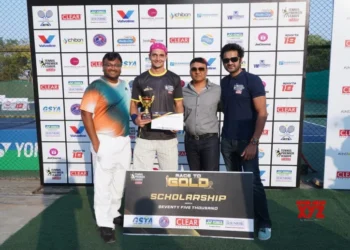A powerful section in the Nagaland government was allegedly trying to ‘delay’ the peace process and maintain status quo in the name of ensuring consensus from ‘all quarters’, including the Naga insurgent group — National Socialist Council of Nagalim (NSCN-IM).
However, bowing to public pressure and insistence from the Government of India to end 25-year-old peace talks, now a key minister in Nagaland Cabinet, Neiba Kronu said on Thursday that ‘early solution’ to the vexed Naga issue “will be good for all”.
Kronu, Parliamentary Affairs Minister and trusted lieutenant of Nagaland Chief Minister Neiphiu Rio, said that the state government and legislators are pressuring the Centre and Naga negotiating groups to arrive at a solution at the earliest.
Addressing a meeting of NDPP workers in Pfutsero town in remote Phek district, the Minister added that all 60 legislators and two Nagaland MPs — Phangnon Konyak (BJP in Rajya Sabha) and Thokeho Yepthomi (NDPP in Lok Sabha) — would meet at Kohima on July 16 to update all concerned parties and chalk out future strategies vis-a-vis the peace talks.
The Nagaland government and a core committee for the peace process had in the last few months urged Assam Chief Minister Himanta Biswa Sarma to broker peace — a task the latter has said he cannot deliver.
Meanwhile, raising eyebrows in certain quarters, former Army chief and former Chief of Defence Staff (CDS), (retd) General M.M. Naravane visited Nagaland earlier this week and met ‘old friends’ and key leaders.
Sources described it as a ‘personal and courtesy visit’ by a senior army officer who served and held important responsibilities in Nagaland and other adjoining states.
Retired General Naravane served in Zakhama in southern Angami region as Nagaland General Officer Commanding and also at Rangapahar near Dimapur in important positions. He had reportedly played a pivotal role in the famous surgical strike on Northeast militants in 2015.
The former CDS also met three categories of people in Nagaland — social workers, state leaders and important “stakeholders in the peace process,” sources said.
(Retd) General Naravane’s visit could be purely personal as he is a retired Army officer. But the timing has raised some general curious questions.
Speculation is rife because ‘time’ is running out via-a-vis peace parleys which began in 1997. Nagaland elections are due by February-March 2023 and the Centre has an obligation to deliver peace and solution as BJP’s election slogan in 2018 was ‘Election for Solution’.
Various student bodies and influential Gaon Burrah Forum (‘village elders’ body) and Nagaland Tribal Council had in the last few months urged Prime Minister Narendra Modi to expedite the peace process and arrive at an early solution.
The umbrella organisation of seven militant groups, Naga National Political Groups (NNPG), led by its Convener N. Kitovi Zhimomi is keen for an early solution while on the other hand, the NSCN-IM’s demands for flag and a separate Naga constitution have stalled the peace parleys.
During his meetings with Naga leaders, (retd) General Naravane was told that ‘delay’ may not serve much purpose and apparently he also concurred with it.
Incidentally, his visit came when the Centre is exploring possibilities of appointing an exclusive Governor for Nagaland.
A source said the Army could enhance deployment of manpower in some parts of the state as well.
Speculation is rife that after July 18, the Centre may initiate some concrete steps next week or so post election of the new President.
On July 18, Nagaland is set to make a record when perhaps for the first time it will vote enmasse (all 60 legislators) in favour of BJP’s and NDA’s presidential candidate Draupadi Murmu.
She is set to become the first tribal President and also the first President to be born after Independence.
In a recent article in local newspapers in the state, veteran Naga leader S.C. Jamir wrote, “A vast majority of the people are anxiously waiting for a new dawn but a small minority of the Nagas want to continue the status quo but people are now vehemently against it. There is a marked change in the mood of the people of Nagaland. The ideological watchdogs have failed to note that there is anger against anti-social and anti-national elements.”






















